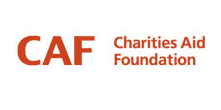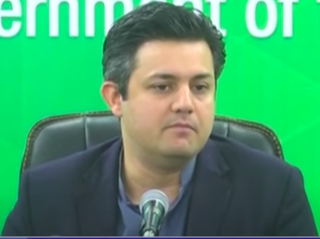Related Research Articles
A nonprofit organization (NPO) or non-profit organisation, also known as a non-business entity, or nonprofit institution, is a legal entity organized and operated for a collective, public or social benefit, in contrary with an entity that operates as a business aiming to generate a profit for its owners. A nonprofit is subject to the non-distribution constraint: any revenues that exceed expenses must be committed to the organization's purpose, not taken by private parties. An array of organizations are nonprofit, including some political organizations, schools, business associations, churches, social clubs, and consumer cooperatives. Nonprofit entities may seek approval from governments to be tax-exempt, and some may also qualify to receive tax-deductible contributions, but an entity may incorporate as a nonprofit entity without securing tax-exempt status.
Philanthropy is a form of altruism that consists of "private initiatives, for the public good, focusing on quality of life". Philanthropy contrasts with business initiatives, which are private initiatives for private good, focusing on material gain; and with government endeavors, which are public initiatives for public good, notably focusing on provision of public services. A person who practices philanthropy is a philanthropist.
ActionAid is an international non-governmental organization whose stated primary aim is to work against poverty and injustice worldwide.

A charitable organization or charity is an organization whose primary objectives are philanthropy and social well-being.
A social enterprise is an organization that applies commercial strategies to maximize improvements in financial, social and environmental well-being. This may include maximizing social impact alongside profits for co-owners.
The social economy is formed by a rich diversity of enterprises and organisations, such as cooperatives, mutuals, associations, foundations, social enterprises and paritarian institutions, sharing common values and features:

Karachi is the financial and industrial capital of Pakistan. As of 2019, Karachi has an estimated GDP (PPP) of $164 billion. The city accounts about half of the total collections of the Federal Board of Revenue, out of which, approximately half are customs duty and sales tax on imports. Karachi produces about 30 percent of value added in large-scale manufacturing, 25% of the GDP, the World Bank identified Karachi as the most business-friendly city in Pakistan. In 2010, research by the global human resources company Mercer found Karachi to be the most inexpensive city in the world.
Laws regulating nonprofit organizations, nonprofit corporations, non-governmental organizations, and voluntary associations vary in different jurisdictions. They all play a critical role in addressing social, economic, and environmental issues. These organizations operate under specific legal frameworks that are regulated by the respective jurisdictions in which they operate.

The Charities Aid Foundation (CAF) is a registered UK charity that operates in the United Kingdom, the United States of America and Canada. It works with companies, private philanthropists, regular donors, fellow foundations, governments, charities and not-for-profit enterprises to enable them to give more. Its stated purpose is to “accelerate progress in society towards a fair and sustainable future for all.”
Philanthrocapitalism or philanthropic capitalism is a way of doing philanthropy, which mirrors the way that business is done in the for-profit world. It may involve venture philanthropy that actively invests in social programs to pursue specific philanthropic goals that would yield return on investment over the long term, or in a more passive form whereby "social investors" benefit from investing in socially-responsible programs.
A foundation in the United States is a type of charitable organization. However, the Internal Revenue Code distinguishes between private foundations and public charities. Private foundations have more restrictions and fewer tax benefits than public charities like community foundations.
Until 1969, the term private foundation was not defined in the United States Internal Revenue Code. Since then, every U.S. charity that qualifies under Section 501(c)(3) of the Internal Revenue Service Code as tax-exempt is a "private foundation" unless it demonstrates to the IRS that it falls into another category such as public charity. Unlike nonprofit corporations classified as a public charity, private foundations in the United States are subject to a 1.39% excise tax or endowment tax on any net investment income.
Taxation in Pakistan is a system of compulsory contributions to state revenue, levied by the government on individuals or businesses, based on ability to pay, as a means of making individuals or organizations contribute towards the costs of public services. Taxation is an essential element of the fiscal policy of any country, and Pakistan is no exception. The country’s tax system is complex and diverse, comprising a range of direct and indirect taxes that are levied by the federal and provincial governments. The tax system in Pakistan is administered by the Federal Board of Revenue (FBR).
Formulary apportionment, also known as unitary taxation, is a method of splitting the total pre-tax profit earned by a multinational between the tax jurisdictions where it does business. It is an alternative to separate entity accounting, under which a branch or subsidiary within the jurisdiction is accounted for as a separate entity, requiring prices for transactions with other parts of the corporation or group to be assigned according to the arm's length standard commonly used in transfer pricing. In contrast, formulary apportionment attributes a portion of a multinational’s total worldwide profit to each jurisdiction, based on factors such as the proportion of sales, assets or payroll in that jurisdiction.

The Pearl Initiative is a non-profit organization founded in 2010 that focuses on corporate governance, accountability and transparency in the Persian Gulf region.
St. Jude India ChildCare Centres is a non-profit organization in India. St Jude India provides free-of-charge shelter and holistic care to children who are undergoing cancer treatment along with their families. It is a Section 8 non-profit company supported by individuals, corporate houses, and charity trusts.
Balochistan Rural Support Programme (BRSP) was a project funded by the German technical cooperation agency Deutsche Gesellschaft für Internationale Zusammenarbeit (GIZ) in the early 1980s which was converted into the Balochistan Rural Support Programme in 1991. It is a Non Government Organization (NGO), part of the Rural Support Programmes Network, working in rural areas of Balochistan, Pakistan.

Muhammad Hammad Azhar is a Pakistani politician from Pakistan Tehreek-e-Insaf. He was elected from NA-126 (Lahore-IV) in 2018 Pakistani general election and remained a member of National Assembly of Pakistan between August 2018 to January 2023. He served in various ministerial positions in Imran Khan ministry between 2018 and April 2022. He served as Energy Minister of Pakistan and Finance Minister of Pakistan between 16 April 2021 to 3 April 2022 and 29 March 2021 to 16 April 2021 respectively.

The global minimum corporate tax rate, or simply the global minimum tax, is a minimum rate of tax on corporate income internationally agreed upon and accepted by individual jurisdictions. Each country would be eligible to a share of revenue generated by the tax. The aim is to reduce tax competition between countries and discourage multinational corporations (MNC) from profit shifting to achieve tax avoidance.

The Dawood Foundation (TDF) is a not-for-profit family foundation based in Karachi, Pakistan. TDF has been working in Pakistan since the 1960s and has been heavily involved in establishing various formal and informal education institutions across the country.
References
- ↑ Anheier, Helmut K.; Simmons, Adele; Winder, David (August 2007). Innovation in strategic philanthropy : local and global perspectives. Boston, MA: Springer Science+Business Media, LLC. p. 60. ISBN 978-0-387-34252-8 . Retrieved 8 May 2022.
- 1 2 "Pakistan Centre for Philanthropy (PCP) approves certification of 19 non-profit organizations". Daily Times. 14 January 2021. Retrieved 8 May 2022.
- ↑ "Notification". Federal Board of Revenue. Government of Pakistan, Revenue Division, Central Board of Revenue. Retrieved 8 May 2022.
- ↑ "PCP grants certification to 11 non-profit organisations". www.thenews.com.pk. The News International. 7 May 2022. Retrieved 8 May 2022.
- ↑ Rasul, Hareem (18 April 2022). "The next generation of philanthropy". DAWN.COM. Retrieved 8 May 2022.
- ↑ Jadoon, Ali M (19 September 2019). "Corporate Giving as a tool for Social Development". Daily Times. Retrieved 8 May 2022.